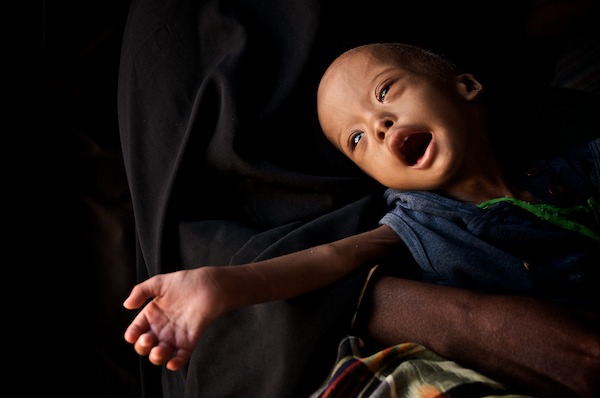 The Boycott Nestle movement began in 1977. Wikipedia explains the issue well:
The Boycott Nestle movement began in 1977. Wikipedia explains the issue well:
- Formula must normally be mixed with water, which is often contaminated in poor countries, leading to disease in vulnerable infants.[5] Because of the low literacy rates in developing nations, many mothers are not aware of the sanitation methods needed in the preparation of bottles. Even mothers able to read in their native tongue may be unable to read the language in which sterilization directions are written.
- Although some mothers can understand the sanitation standards required often do not have the means to perform them: fuel to boil water, electric (or other reliable) light to enable sterilisation at night. UNICEF estimates that a formula-fed child living in disease-ridden and unhygienic conditions is between six and 25 times more likely to die of diarrhea and four times more likely to die of pneumonia than a breastfed child.[6]
- Many poor mothers use less formula powder than is necessary, in order to make a container of formula last longer. As a result, some infants receive inadequatenutrition from weak solutions of formula.[7]
- Breast milk has many natural benefits lacking in formula. Nutrients and antibodies are passed to the baby while hormones are released into the mother’s body.[8]Breastfed babies are protected, in varying degrees, from a number of illnesses, including diarrhea, bacterial meningitis, gastroenteritis, ear infection, and respiratory infection.[9][10][11] Breast milk contains the right amount of the nutrients essential for neuronal (brain and nerve) development.[12] The bond between baby and mother can be strengthened during breastfeeding.[10] Frequent and exclusive breastfeeding can also delay the return of fertility, which can help women in developing countries to space their births.[13] The World Health Organization recommends that, in the majority of cases, babies should be exclusively breast fed for the first six months.[14]
The formula marketing tactics were first exposed in 1973 but little has changed. Despite almost 40 years of protest, very little has changed in Nestle’s marketing strategies, even though they call themselves “the world’s leading Nutrition, Health and Wellness company”. Along with Pure Life bottled tap water, Nestle’s infant formula has been identified as a “Popularly Positioned Product”. Food & Water Watch (via EcoWatch) explains:
According to company documents:
PPPs target less affluent consumers in emerging markets (UN/World Bank definition—those with an annual purchasing power parity between US$3,000 and 22,000 per-capita) as well as low food spenders in developed economies. Together, they represent some 50 percent of the world’s population. Hence, PPPs target the biggest and fastest growing consumer base in emerging markets as well as important sub-groups in developed markets.
Of particular concern in this country is Nestle’s marketing tactics at hospitals, where 66 percent of medical facilities distribute formula gift bags to new parents. Food & Water Watch explains:
Food & Water Watch has joined a new effort led by Public Citizen to pressure hospitals and formula companies to stop this practice. In a letter to hospitals, a coalition of consumer and health organizations charges that they should be promoting the health of infants and mothers, not formula makers, and says that hospitals engaged in distributing free formula samples are in violation of the World Health Organization’s (WHO) International Code of Marketing of Breast-milk Substitutes, which states that healthcare facilities are not to be used for the marketing of infant formula. WHO recommends exclusively breastfeeding children up to six months of age with supplemental breastfeeding until age two.
Leave a Reply